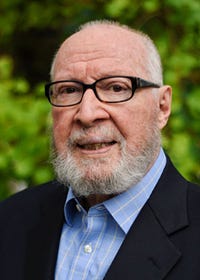Dr. Lawrence Pettit, also known as Larry, was the first Commissioner of Higher Education for Montana after the new constitution was adopted in 1973. Among the many things that were (and still are) unique about our constitution was that it was one of the first to include a provision that provided autonomy for the university system, so that they had the regents were appointed by the Commissioner of Higher Education rather than by the governor. Before this development, the legislature, and other political entities, were accustomed to imposing their own agendas onto the university system in Montana. After Dr. Pettit was appointed, the legislature even tried to implement some legislation that would have essentially given them the power to continue as they had been, but Pettit and his regents filed a suit against that legislation, which ended up driving a wedge between Dr. Pettit and the governor at the time, Tom Judge, who happened to be Pettit’s brother-in-law. Dr. Pettit’s willingness to defend what he felt was important had a long-lasting effect on the education system in Montana, and his dedication to education continued long after that position, as he held positions as university president at several universities.
Dr. Pettit was born on May 2, 1937, in Lewistown, MT, and received his education at the University of Montana (B.A.), Washington University in St. Louis (M.A.), and the University of Wisconsin, Madison (Ph.D). Dr. Pettit has had dual careers in politics and higher education















Episode Twenty - Dr. Lawrence Pettit